 W
WEnvironmental education (EE) refers to organized efforts to teach how natural environments function, and particularly, how human beings can manage behavior and ecosystems to live sustainably. It is a multi-disciplinary field integrating disciplines such as biology, chemistry, physics, ecology, earth science, atmospheric science, mathematics, and geography. The United Nations Educational, Scientific and Cultural Organisation (UNESCO) states that EE is vital in imparting an inherent respect for nature amongst society and in enhancing public environmental awareness. UNESCO emphasises the role of EE in safeguarding future global developments of societal quality of life (QOL), through the protection of the environment, eradication of poverty, minimization of inequalities and insurance of sustainable development. The term often implies education within the school system, from primary to post-secondary. However, it sometimes includes all efforts to educate the public and other audiences, including print materials, websites, media campaigns, etc.. There are also ways that environmental education is taught outside the traditional classroom. Aquariums, zoos, parks, and nature centers all have ways of teaching the public about the environment.
 W
WAn adventure playground is a specific type of playground for children. Adventure playgrounds can take many forms, ranging from "natural playgrounds" to "junk playgrounds", and are typically defined by an ethos of unrestricted play, the presence of playworkers, and the absence of adult-manufactured or rigid play-structures. Adventure playgrounds are frequently defined in contrast to playing fields, contemporary-design playgrounds made by adult architects, and traditional-equipment play areas containing adult-made rigid play-structures like swings, slides, seesaws, and climbing bars.
 W
WThe Center for the Development of Recycling (CDR) is a university-based, non-profit, environmental research and service organization. The CDR operates the recycling and reuse website RecycleStuff.org for the counties of Santa Clara and San Mateo, a recycling call center and household hazardous waste appointment system for Santa Clara County, and has completed over 60 contracted projects. The CDR is located in the Department of Environmental Studies at San Jose State University (SJSU). Faculty-managed service-learning university students collect and populate the website with data, respond to information requests from the public, and work on recycling and waste reduction projects for the community. CDR student's provide the community with a cost-effient public service. Hundreds of its service learning students have completed internships with local government and industry and over 100 have transitioned from college to sustainable materials management careers with industry and government.
 W
WPublic opinion on climate change is the aggregate of attitudes or beliefs held by the adult population concerning the science, economics, and politics of climate change. It is affected by media coverage of climate change.
 W
WA climate-friendly school promotes sustainable development specifically through alleviating the effects of climate change by minimising the production of carbon dioxide. The term "climate-friendly school" arose and was promoted by the United Nation's education for sustainable development program (ESD).
 W
WEarth Rangers is a Canadian environmental education and conservation non-profit aimed specifically at youth. The goal of the organization is to educate children and their families about biodiversity, inspire them to adopt sustainable behaviours, and empower them to become directly involved in protecting animals and their habitats. Earth Rangers currently has more than 140,000 members across Canada, and visits 800 elementary schools every year with an educational live animal show.
 W
WWorld Water Monitoring Day was established in 2003 by America's Clean Water Foundation (ACWF) as a global educational outreach program. The program, subsequently named the "World Water Monitoring Challenge" and "EarthEcho Water Challenge," aims to build public awareness and involvement in protecting water resources around the world by empowering citizens to carry out basic monitoring of their local water bodies. Roberta (Robbi) Savage, ACWF's President and CEO created WWMD, and Edward Moyer was the first WWMD Coordinator.
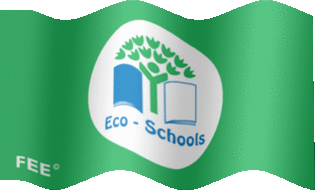 W
WEco-Schools is an international programme of the Foundation for Environmental Education (FEE) that aims to “empower students to be the change our sustainable world needs by engaging them in fun, action-orientated, and socially responsible learning.”
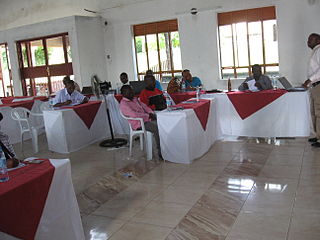 W
WEducation for sustainable development (ESD) was a United Nations program that defined as education that encourages changes in knowledge, skills, values and attitudes to enable a more sustainable and just society for all. ESD aims to empower and equip current and future generations to meet their needs using a balanced and integrated approach to the economic, social and environmental dimensions of sustainable development. ESD is the term most used internationally and by the United Nations. Agenda 21 was the first international document that identified education as an essential tool for achieving sustainable development and highlighted areas of action for education.
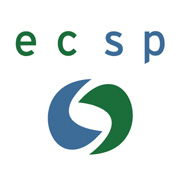 W
WThe Environmental Change and Security Program (ECSP) is one of several programs and projects that make up the Global Resilience and Sustainability Program at the Woodrow Wilson International Center for Scholars. ECSP was founded in 1994 to study the connections among environmental, health, and population dynamics and their links to conflict, human insecurity, and foreign policy.
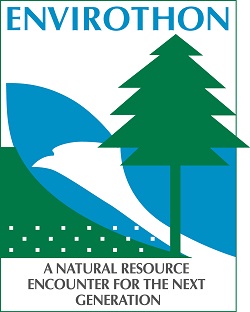 W
WNCF-Envirothon is an annual environmentally themed academic competition for high school aged students organized by the NCF-Envirothon a program of the National Conservation Foundation. The competition is held by the United States and Canada on a regional, state, and bi-national level. Envirothon combines in-class and hands-on environmental education in a competition setting which involves a problem-solving presentation as well as written field tests. The competition tests students on five core subjects- aquatic ecology, forestry, soils and land use, wildlife- along with a fifth annually-changing subtopic which focuses on relevant environmental issues. Currently, roughly 500,000 students from forty-five U.S. states and nine Canadian provinces/territories participate in the competition.
 W
WForest kindergarten is a type of preschool education for children between the ages of three and six that is held almost exclusively outdoors. Whatever the weather, children are encouraged to play, explore and learn in a forest environment. The adult supervision is meant to assist rather than lead. It is also known as Waldkindergarten, outdoor nursery, or nature kindergarten.
 W
WA geopark is a unified area that advances the protection and use of geological heritage in a sustainable way, and promotes the economic well-being of the people who live there. There are global geoparks and national geoparks.
 W
WGobar Times is a monthly environmental education magazine for the young adult, published by the Centre for Science and Environment. It is published along with Down to Earth as a supplement. The magazine was first published in May, 1998 and has widespread circulation across India and abroad. The icon of the magazine, Pandit Gobar Ganesh, the pondering panditji is an Indian elderly who takes the reader through current issues, subjects and ideas relating to the environment. He is the icon whose brains can be picked for anything on earth. The current editor of the magazine is Sorit Gupto.
 W
WThe International Summer University is a short-term program that is held during the summer season by the University of Kassel every year. In addition to the international master programs, University Kassel organizes the ISU as one of its internationalization strategies.
 W
WNational Green Corps is a programme of the Ministry of Environment and Forests of Government of India covering around 1,20,000 schools in India with NGC School Eco Clubs. Environmental activity in schools in India is promoted through the National Green Corps. Each NGC School Eco Club has 30 to 50 NGC Students or NGC Cadets who form the National Green Corps. These NGC Students participate in activities related to Biodiversity Conservation, Water Conservation, Energy Conservation, Waste Management and Land Use Planning and Resource Management. Locale specific issues are focused by the NGC Eco Clubs. When young girls and boys from NGC take up the environmental awareness activities and outreach activities, they attract huge public attention which eventually becomes public support for an environmental cause or environmental intervention. Water Harvesting, Plantation, Composting of biodegradable waste are most popular activities in the NGC School Eco Clubs. These NGC School Eco Clubs promote environmental discipline and environmental responsibility through the selected schools in India using environmental awareness as the medium. Each of the 250 districts in India has about 250 NGC Eco Clubs. These NGC Eco Clubs are provided with an annual grant of Rs2500. Each of the Indian State has a State Nodal Officer who implements this programme.
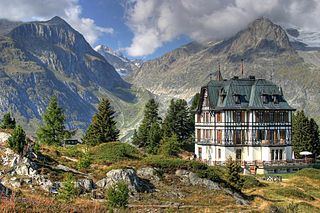 W
WA nature center is an organization with a visitor center or interpretive center designed to educate people about nature and the environment. Usually located within a protected open space, nature centers often have trails through their property. Some are located within a state or city park, and some have special gardens or an arboretum. Their properties can be characterized as nature preserves and wildlife sanctuaries. Nature centers generally display small live animals, such as reptiles, rodents, insects, or fish. There are often museum exhibits and displays about natural history, or preserved mounted animals or nature dioramas. Nature centers are staffed by paid or volunteer naturalists and most offer educational programs to the general public, as well as summer camp, after-school and school group programs.
 W
WThe North American Association for Environmental Education (NAAEE) is a US-based nonprofit organization.
 W
WRajadurai Foundation was established in 2009 by Mylaudy Dr. S. Rajadurai, the mission of which is to build human potential through advancement of professional aspiration, academic scholarship, protection of environment and societies and gift real hope through all-inclusive partnership and spirituality.
 W
WRot op met je milieu is a 2016 Dutch television series by the Evangelische Omroep, presented by Dennis van der Geest.
 W
WWorld Water Monitoring Day was established in 2003 by America's Clean Water Foundation (ACWF) as a global educational outreach program. The program, subsequently named the "World Water Monitoring Challenge" and "EarthEcho Water Challenge," aims to build public awareness and involvement in protecting water resources around the world by empowering citizens to carry out basic monitoring of their local water bodies. Roberta (Robbi) Savage, ACWF's President and CEO created WWMD, and Edward Moyer was the first WWMD Coordinator.